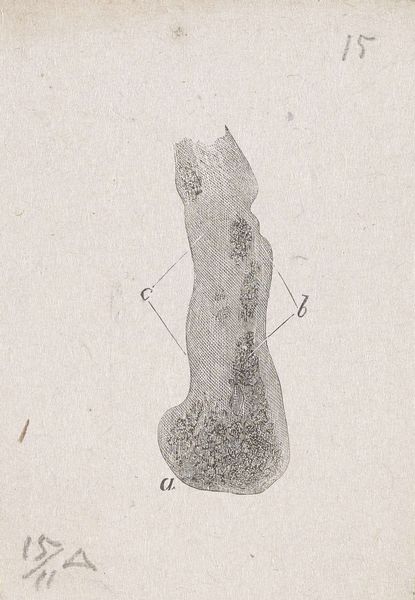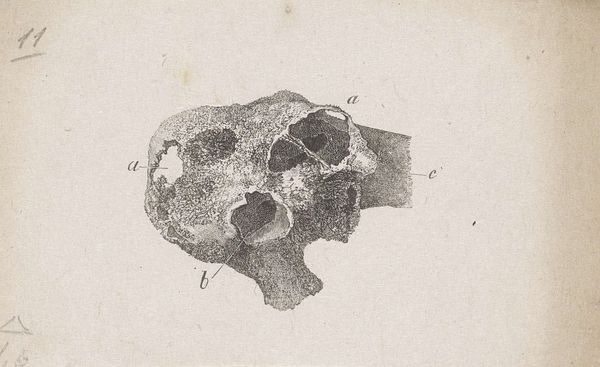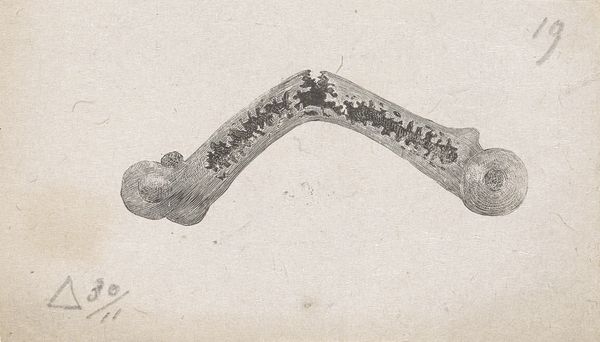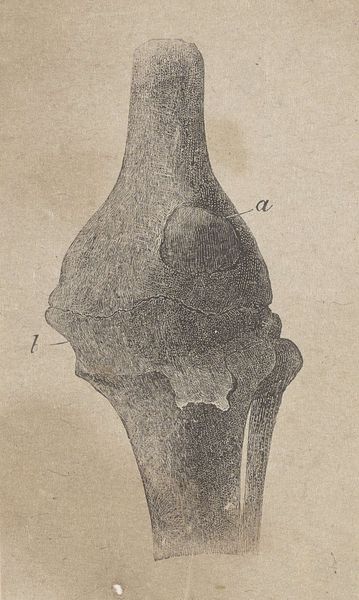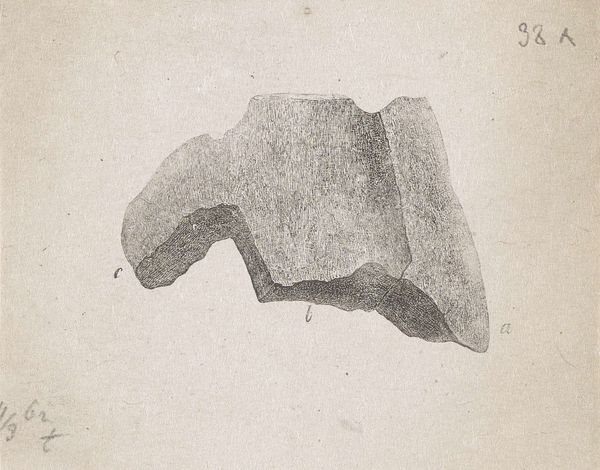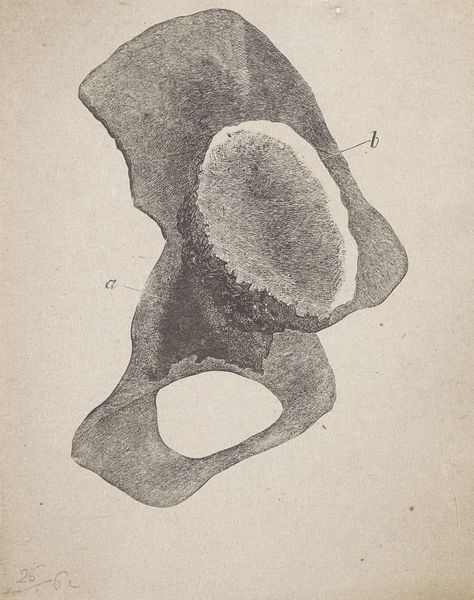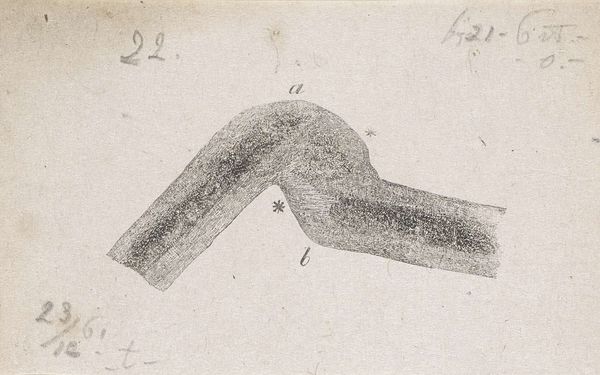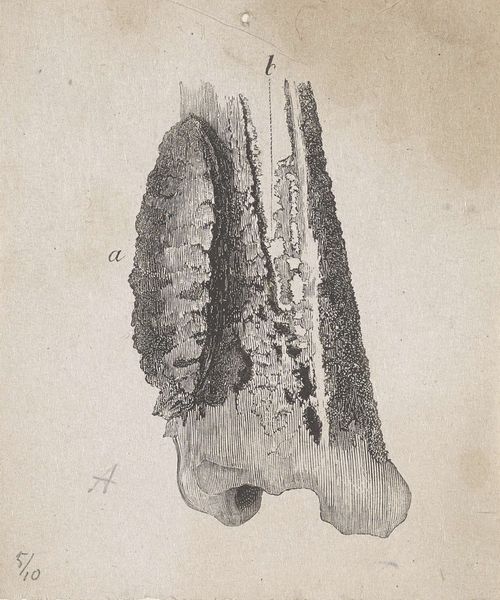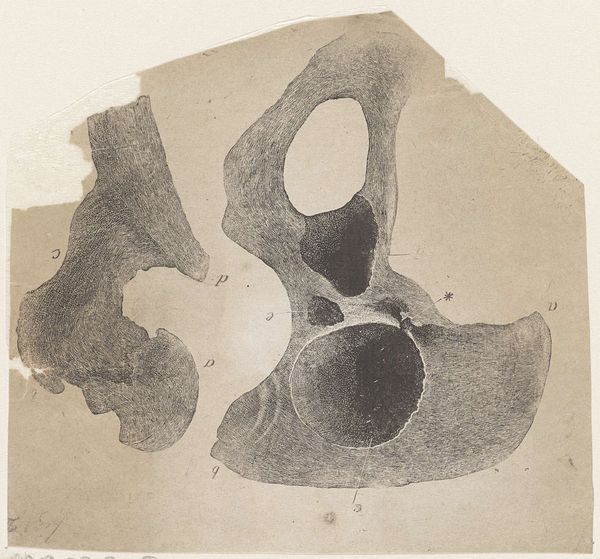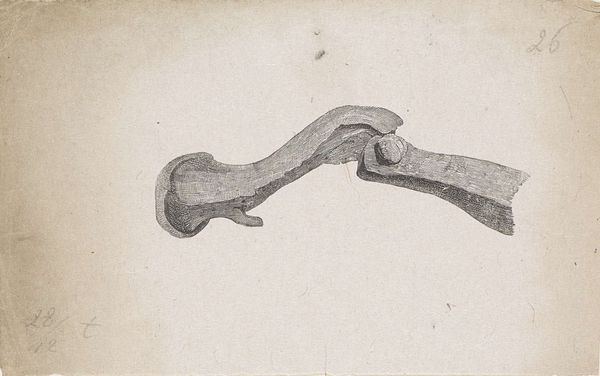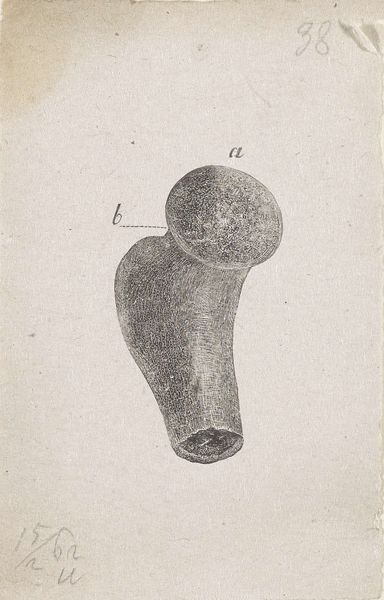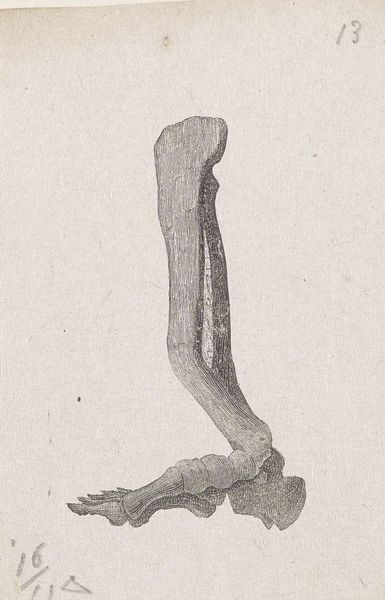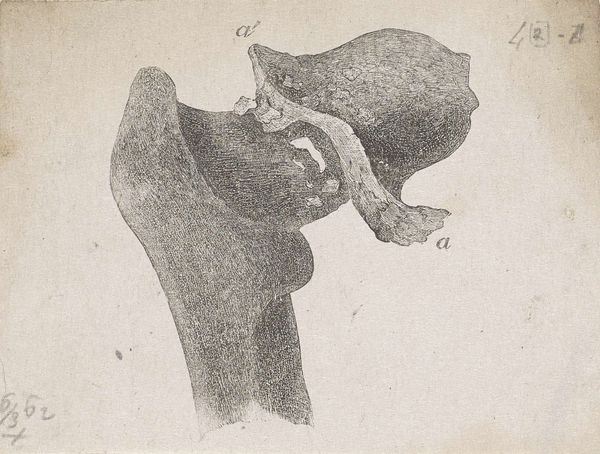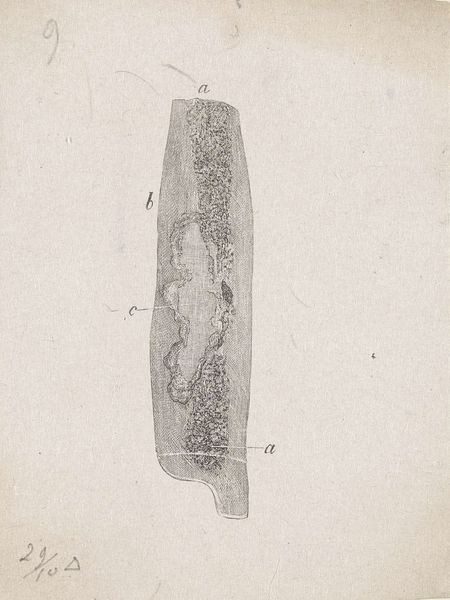
Onderdeel van het menselijk lichaam met een afwijking 1836 - 1912
0:00
0:00
isaacweissenbruch
Rijksmuseum
drawing, pencil
#
drawing
#
figuration
#
pencil drawing
#
pencil
#
academic-art
Dimensions: height 95 mm, width 63 mm
Copyright: Rijks Museum: Open Domain
Isaac Weissenbruch made this drawing of a human bone with an abnormality, using graphite, in the Netherlands at some point in the 19th century. In Weissenbruch's time, the rise of scientific positivism greatly impacted the production of art. Artists became interested in the empirical study of the world, and scientific illustration became a more respected genre. The availability of new technologies, such as the microscope and photography, transformed the way people understood the human body. The growth of hospitals and medical schools, as well as the increased professionalization of medicine, led to a greater focus on the human anatomy. This work is part of a larger trend in the 19th century as artists sought to represent the human body in a more realistic and objective way. Historians can consult a range of archives and resources, including medical textbooks, museum collections, and even personal letters, to understand the cultural contexts that shaped this drawing.
Comments
No comments
Be the first to comment and join the conversation on the ultimate creative platform.
